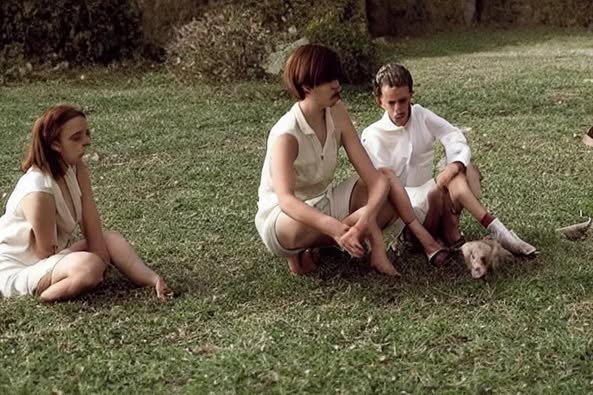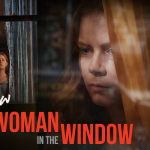Dogtooth (2009)

Dogtooth is a 2009 Greek psychological drama directed by Yorgos Lanthimos, known for its unsettling exploration of control, isolation, and the complexities of human behavior. The film garnered international acclaim and won the Un Certain Regard prize at the Cannes Film Festival, further establishing Lanthimos as a distinctive voice in contemporary cinema.
The story revolves around a deeply dysfunctional family living in a secluded compound. The parents, Christos Stergioglou (the father) and Michelle Valley (the mother), raise their three children—two daughters and a son—in complete isolation from the outside world. They create an alternate reality, using their own fabricated language and a series of bizarre rules to control every aspect of their children’s lives. The children are led to believe that they cannot leave the property until they reach a certain age, which their father defines as a “dogtooth” age.

As the children grow, their understanding of the world is warped. They are taught that anything outside their compound is dangerous, and their knowledge of reality is limited to what their parents choose to share. This manipulation leads to disturbing behaviors and a profound lack of social skills, creating a chilling atmosphere.
The film’s narrative delves into themes of power, manipulation, and the nature of freedom. The father’s authoritarian control and the mother’s complicity highlight the dynamics of abuse and the impact of extreme parenting. The children’s interactions with outside influences, such as a hired security guard, introduce further complications and challenge their perceptions of reality.

Lanthimos’s direction is marked by a stark visual style, using static shots and a muted color palette to enhance the film’s unsettling tone. The performances are striking, particularly from the young actors who portray the children, capturing their innocence intertwined with a growing sense of confusion and rebellion.
Dogtooth invites viewers to reflect on the nature of reality and the psychological effects of isolation. Its provocative content and unconventional storytelling can be both disturbing and thought-provoking, pushing the boundaries of conventional narrative cinema.

While the film received mixed reviews from some audiences due to its challenging themes and unsettling content, it has been hailed as a significant work in world cinema. It has sparked discussions about the ethics of parenting, the constructs of power, and the human condition.
In conclusion, Dogtooth is a haunting and thought-provoking film that explores the depths of control and isolation within a family dynamic. With its unique narrative style and powerful performances, it leaves a lasting impact, challenging viewers to confront uncomfortable truths about human nature and the constructs of society.











